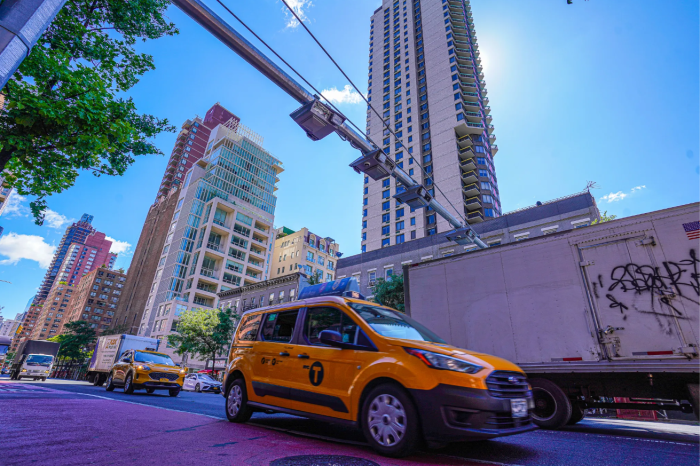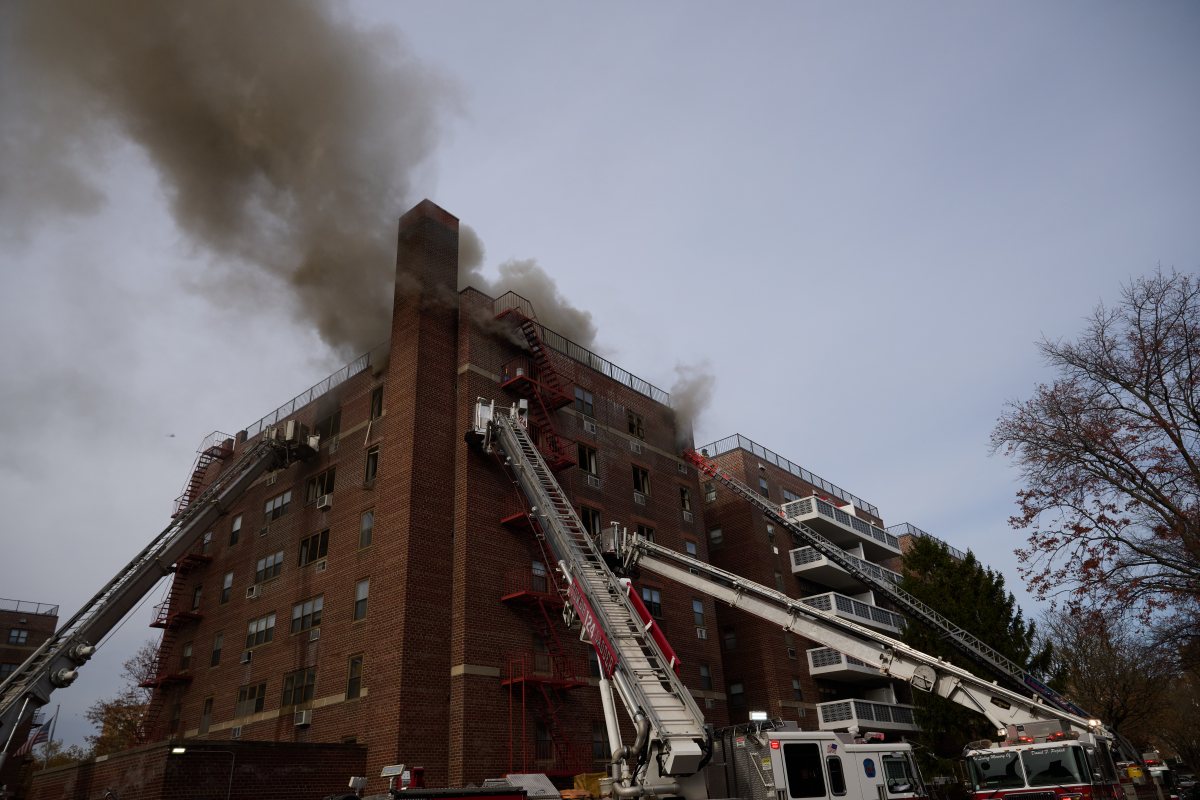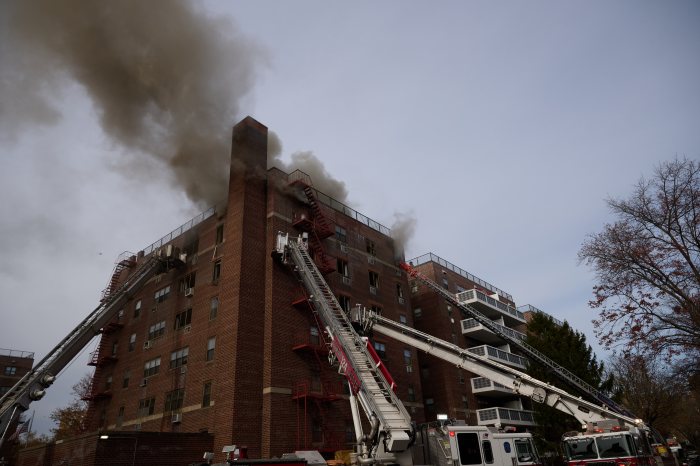
The fine for littering in the subway system will double, as part of a larger effort to reduce delays related to debris on tracks, Gov. Andrew M. Cuomo said.
Beginning next week, the fine for violating state laws against littering will increase from $50 to $100, as the governor calls for increased enforcement of the offense. Cuomo announced the move to reporters on Wednesday during a late-night tour of track cleaning work on the tracks of the downtown 6 train at the Union Square station.
“Littering on the tracks is illegal and has been an increasing problem,” Cuomo said, from Union Square station’s underground fan room. “It’s water bottles; it’s coffee cups; it’s food wrappers … each piece in and of itself, insignificant — it’s a candy wrapper — but when you add [it] up, it’s literally tons of trash being left in the system.”
That trash can spark track fires or clog water drains, leading to pooling water that causes thousands of delays each year. On an average day without rain, the MTA removes 13 million gallons of water from the subway system. But remaining standing water, caused by blocked drains, can break down the track bed and corrode electrical connections on the tracks.
The littering crackdown is half of a two-pronged approach to keep subway tracks clean, a goal of the MTA’s $836 million subway improvement plan to combat the soaring number of delays and high-profile service failures in the system.
The second element of the approach, already in place, is the implementation of a new water management and debris removal program that Cuomo said will take a preventive approach. The MTA will seal 4,325 identified leaks, and will clean street grates and under-the-track drains, courtesy of 300 workers logging eight- to 12-hour shifts.
The plan will first target the 10 dirtiest corridors that total 286 miles of subway rails — 43 percent of the MTA’s total mainline track.
New cleaning equipment will also play a part. The MTA will deploy 14 new machines, including track vacuums, portable platform vacuums and drain cleaners, to help clear the silt, sediment, water and trash that builds up on tracks.
“Part of this whole effort is the resource piece that needs to tie into the demand that we have,” said MTA chief operating officer Phil Eng.
Cuomo blamed a lack of NYPD enforcement for what he said was a growing littering problem. In 2012, 669 littering tickets were issued in the subway system, compared with less than 100 so far this year, according to data provided by Cuomo. Meanwhile, track debris fires increased from 261 to 470. Cuomo likened the issue to traffic enforcement.
“One of the reason you don’t speed … is you think, ‘maybe I’ll get a speeding ticket,’ ” he said. “If you have no fear of getting a speeding ticket you might speed more.”
Cuomo said the MTA, which he controls, has spoken with the city’s police department about ramping up ticketing for littering. But at the MTA’s most recent committee meetings in July, police seemed unconcerned with the issue. NYPD Transit assistant chief Vincent Coogan blamed shrinking enforcement on the notion that people simply weren’t littering in front of cops.
“Most people would not litter in front of a uniformed officer, I wouldn’t think. But when we do see it happen, we do issue a TAB (Transit Adjudication Bureau) summons,” Coogan said at the meeting. “So we don’t ignore it. We do issues summonses for it.”
Criminal Justice experts questioned whether the plan to increase enforcement won’t simply become a burden on poor commuters. Tim Rountree, attorney-in-charge of the Legal Aid Society’s Criminal Defense Practice in Queens, called the enforcement angle of the governor’s plan “short-sighted.”
“Doubling fines is not how you change human behavior,” said Rountree, who suggested that the MTA should first focus providing more trash bins. “It’s also going to be difficult to enforce…Politicians want to fix things by tacking on more fines and fees as punishment for every day working people. What’s going to happen to the people who can’t afford the fine?”
Austin Finan, a spokesman for the mayor, said the city supports the governor’s littering enforcement plans, including the doubling of the littering fine.
“The Mayor’s been clear that the City is a willing and ready partner to help cut down on littering in the subway system,” Finan said in a statement, “through both education and stepped -up enforcement.”
Cuomo also still needs to help the MTA find half of the funding for its $836 million subway plan, which relies heavily on hiring more workers. While the governor has agreed to pony up half the funding, Mayor Bill de Blasio has refused the MTA’s request to pay for the other half, reasoning that the MTA and the state have wasted too much money already allocated to the agency over the years.
Despite more than a month of bickering over the issue, Cuomo refuses to believe the city won’t come through with funding for an agency where there is “shared responsibility” between the city and state.
“I can’t believe that the city would renege on its clear, legal and moral obligation that’s funding the transportation system that the city literally relies on,” Cuomo said.
On that, the mayor is not budging.
“It’s time the State quit pretending that it didn’t swipe $456 million from the MTA for its general fund,” Finan continued. “The sooner those dollars are returned, the sooner New Yorkers can start moving again.”




































